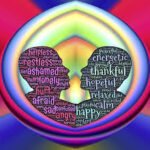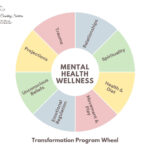Have you ever noticed a pattern in your life? Maybe you find yourself attracting the same kind of romantic partner, repeatedly facing similar challenges at work, or struggling with constant self-doubt. These patterns, both positive and negative, can often be traced back to the beliefs we formed in childhood. Let’s delve into the fascinating connection between childhood beliefs, adult emotions, and the stories we tell ourselves.
The Power of Early Impressions:
Our brains are like sponges during childhood, absorbing information and experiences at an incredible rate. These early experiences shape our understanding of the world, ourselves, and our place within it. Messages we receive from parents, caregivers, and society at large get woven into the fabric of our subconscious mind, forming the foundation for our belief systems.
Beliefs Become Our Internal Narrator:
These core beliefs, often unconscious, become the internal narrator of our lives. They influence how we interpret events, make decisions, and ultimately, how we feel. For example, a child who is frequently criticized might develop the belief that they are “not good enough.” This belief then acts as a filter, coloring their perception of future experiences. Even a minor setback could be interpreted as confirmation of their inadequacy, leading to feelings of discouragement or anxiety.
The Stories We Create:
We don’t simply experience raw emotions; we create stories around them. These stories, often unconscious, provide a framework for understanding our feelings. Imagine someone who gets passed over for a promotion. They might create a story that goes something like, “I’m not qualified enough,” or “My boss doesn’t value me.” These stories then reinforce the underlying belief we learned in childhood leading to feelings of insecurity or anger.
Our Unconscious and Childhood Programming:
Our unconscious mind, like a vast library, stores these early experiences and beliefs. We may not even be aware of their existence, yet they continue to influence our thoughts, feelings, and actions. Think of it as a hidden script running in the background of our lives. As adults, we unconsciously create stories to explain our emotions, often drawing on these childhood beliefs as reference points. This can create a self-fulfilling loop, where our stories reinforce our beliefs, leading to a limited and potentially negative view of ourselves and the world. By becoming aware of this process, we can break free from these outdated narratives and rewrite our stories to create a more fulfilling and authentic life.
The stories we create are like mental shortcuts, helping us make sense of the world quickly. However, these shortcuts can become outdated or inaccurate, especially if based on childhood experiences. For instance, a child who was bullied for being shy might grow up with the story, “It’s not safe to put myself out there.” This story, while once potentially protective, could hinder their ability to form meaningful connections as an adult. The good news is that we can rewrite these stories. By becoming aware of the unconscious beliefs influencing them, we can challenge their validity and craft narratives that empower us rather than limit us.
Breaking the Cycle:
The good news is that we are not prisoners of our past. By becoming aware of our unconscious beliefs and the stories we tell ourselves, we can take back control of the narrative. Here are some tips to help you break the cycle:
- Identify Your Patterns: Reflect on recurring themes in your life. What challenges do you keep facing? What emotions do you experience most frequently? These patterns might be pointing towards a core belief that needs attention.
- Challenge Your Stories: When you find yourself feeling a certain way, question the story you’re telling yourself. Is there evidence to support it? Could there be another explanation? By challenging these narratives, you weaken their hold.
- Reframe Your Beliefs: Once you identify a limiting belief, reframe it into an empowering one. For example, instead of “I’m not good enough,” try “I am continually learning and growing.”
- Practice Self-Compassion: Be kind to yourself throughout this process. Changing ingrained patterns takes time and self-compassion is essential. Celebrate your progress, no matter how small.
Living a Story You Love: By understanding how childhood beliefs shape our adult reality, we can begin to rewrite the script. We have the power to challenge our limiting beliefs and replace them with empowering ones. As we shift our internal narrative, we open ourselves up to a more fulfilling and authentic life. Remember, you are the author of your story. Take charge of the pen and write a life you love!







